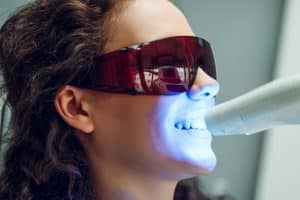
[et_pb_section fb_built=”1″ _builder_version=”4.16″ custom_margin=”0px|0px|0px|0px|false|false” custom_padding=”54px|0px|100px|0px||” bottom_divider_style=”none” bottom_divider_color=”#468ea5″ bottom_divider_height=”9vw” bottom_divider_flip=”horizontal” global_colors_info=”{}”][et_pb_row _builder_version=”4.16″ custom_padding=”||90px|||” global_colors_info=”{}”][et_pb_column type=”4_4″ _builder_version=”4.16″ global_colors_info=”{}”][et_pb_text ul_item_indent=”30px” module_id=”consult” _builder_version=”4.17.4″ text_text_color=”#FFFFFF” link_text_color=”#0077BA” ul_line_height=”2em” header_2_font=”||||||||” header_2_text_color=”#FFFFFF” header_2_font_size=”2em” header_2_letter_spacing=”1px” header_3_text_color=”#0077BA” header_3_font_size=”19px” background_color=”#0B2344″ custom_margin=”|||0px|false|false” custom_margin_tablet=”2em||||false|false” custom_margin_phone=”” custom_margin_last_edited=”on|phone” custom_padding=”2em|2em|2em|2em|true|true” animation_style=”fade” global_colors_info=”{}”]
A poor diet can lead to many dental problems, including tooth decay, gum disease, and even tooth loss. Poor dietary choices feed the harmful bacteria in your mouth, leading to plaque buildup and acid production that erode your tooth enamel. But, by prioritizing nutritious foods and maintaining a balanced diet, you can help fortify your teeth and reduce the risk of oral infections and inflammation.
[/et_pb_text][et_pb_text ul_item_indent=”30px” module_id=”consult” _builder_version=”4.17.4″ link_text_color=”#0077BA” ul_line_height=”2em” header_2_font=”||||||||” header_2_text_color=”#172953″ header_2_font_size=”2em” header_2_letter_spacing=”1px” header_3_text_color=”#0077BA” header_3_font_size=”19px” custom_margin=”|||0px|false|false” custom_margin_tablet=”2em||||false|false” custom_margin_phone=”” custom_margin_last_edited=”on|phone” custom_padding=”30px|||15px|false|false” animation_style=”fade” global_colors_info=”{}”]
What Nutrients Are Good For Your Teeth?
At The Dentist in Louisville, we understand that time is valuable. That’s why we’ve streamlined the dental implant process without compromising on quality. Typically, the process involves several stages, including consultation, implant placement, healing, and final restoration. With Dr. Barta’s expertise and our state-of-the-art technology, such as 3D imaging for precise planning, we strive to complete the entire process efficiently, ensuring you achieve a confident smile in a timely manner.
Calcium
Widely recognized for its critical role in building and maintaining strong bones, calcium is equally important for healthy teeth. It helps harden your enamel and fortify your jawbone, which supports your teeth. Dairy products like milk, cheese, and yogurt, as well as leafy greens and almonds, are high in calcium.
Phosphorus
Phosphorous works closely with calcium to support the structure of your teeth. Phosphorus helps repair and maintain all body tissues, including the enamel. Foods such as meat, poultry, fish, milk, and whole grains are rich in phosphorus.
Vitamin D
Vitamin D helps the body absorb calcium and phosphorus. Without adequate Vitamin D, your teeth can become brittle and susceptible to fractures. Ensure sufficient Vitamin D levels by getting moderate sun exposure and consuming fortified foods like cereals, dairy products, and fatty fish.
Vitamin C
Vitamin C helps to strengthen your gums and the soft tissue in your mouth. It can protect against gingivitis, the early stage of gum disease, and can prevent your teeth from loosening. Include citrus fruits, tomatoes, peppers, broccoli, and spinach in your diet to boost Vitamin C intake.
What Foods Are Good For Your Teeth?
Dairy Products
Cheese, milk, and yogurt are excellent for your teeth not only because they are high in calcium, which strengthens the teeth and bones, but also because they help to neutralize acids in the mouth, reducing the risk of tooth decay.
Crunchy Fruits and Vegetables
Foods like apples, carrots, and celery are not only packed with essential vitamins and minerals but also act as natural toothbrushes. The action of chewing these crunchy foods stimulates saliva production, which helps to cleanse your mouth and wash away food particles and bacteria.
Leafy Greens
Spinach, kale, and other high-fiber greens are loaded with vitamins and minerals while being low in calories. These leafy greens are rich in calcium, which builds your teeth’s enamel, and also contain folic acid, a type of B vitamin with numerous health benefits.
Nuts and Seeds
Almonds, sunflower seeds, and other nuts and seeds are good sources of phosphorus and calcium, which contribute to the health of your teeth. Nuts also stimulate saliva production, which can reduce the risk of tooth decay. Moreover, they provide healthy fats and protein, making them a nutritious snack option.
Dietary Habits to Avoid for Healthy Teeth
- Sugary Foods and Drinks: Consuming high amounts of sugar is one of the primary contributors to tooth decay. When sugar is consumed, it interacts with bacteria within the plaque to produce acid. This acid attacks the enamel, the outer layer of the tooth, leading to decay.
- Acidic Foods and Beverages: Foods and drinks with high acidity can cause erosion of the tooth enamel, making your teeth more susceptible to decay. While it’s not necessary to completely avoid acidic foods, it is crucial to consume them in moderation and rinse your mouth with water afterward to neutralize the acids.
- Sticky and Hard Foods: Sticky foods like dried fruits and candies adhere to your teeth longer, making them more likely to cause decay. Hard foods, such as ice and hard candies, can lead to dental emergencies like cracked or broken teeth. To protect your oral health, choose less sticky alternatives and avoid using your teeth to crack hard substances.
Schedule a Dental Consultation in Louisville, CO
Understanding the link between your diet and oral health can help you maintain a healthy, vibrant smile for longer. If you have questions about your dental health or want to schedule your next dental appointment, contact The Dentist in Louisville, in Louisville, CO. Our team can answer your questions and make dietary recommendations to support the health of your teeth.
[/et_pb_text][et_pb_code admin_label=”schema code” _builder_version=”4.17.4″ _module_preset=”default” global_colors_info=”{}”][/et_pb_code][/et_pb_column][/et_pb_row][et_pb_row column_structure=”1_3,2_3″ _builder_version=”4.16″ custom_padding=”||90px|||” global_colors_info=”{}”][et_pb_column type=”1_3″ _builder_version=”4.16″ global_colors_info=”{}”][et_pb_image src=”https://thedentistinlouisville.com/wp-content/uploads/2024/04/Screenshot-2024-04-25-102605.png” alt=”Dr Jay Barta with The Dentist in Louisville” title_text=”Screenshot 2024-04-25 102605″ _builder_version=”4.17.4″ _module_preset=”default” global_colors_info=”{}”][/et_pb_image][/et_pb_column][et_pb_column type=”2_3″ _builder_version=”4.16″ global_colors_info=”{}”][et_pb_text _builder_version=”4.17.4″ _module_preset=”default” custom_padding=”|||15px|false|false” global_colors_info=”{}”]
Jay Barta, DDS
With a foundation in dentistry from University of Detroit Mercy School of Dentistry, Dr. Barta brings expertise and empathy to The Dentist in Louisville. His varied professional background underscores a dedication to patient connections. Leveraging advanced technology, Dr. Barta and his team offer a comprehensive approach to oral health, focusing on patient needs and long-term well-being.
[/et_pb_text][/et_pb_column][/et_pb_row][/et_pb_section][et_pb_section fb_built=”1″ admin_label=”Call to Action Section” _builder_version=”4.11.1″ background_color=”#303030″ background_enable_color=”off” background_image=”https://thedentistinlouisville.com/wp-content/uploads/2021/10/cta.jpg” parallax=”on” parallax_method=”off” custom_padding=”5em|0px|5em|0px|true|false” global_module=”4636″ saved_tabs=”all” global_colors_info=”{}”][et_pb_row _builder_version=”4.16″ width=”100%” max_width=”100%” custom_padding=”|0px|0|0px” use_custom_width=”on” width_unit=”off” custom_width_percent=”100%” global_colors_info=”{}”][et_pb_column type=”4_4″ _builder_version=”4.16″ custom_padding=”|||” global_colors_info=”{}” custom_padding__hover=”|||”][et_pb_text _builder_version=”4.16″ _module_preset=”default” header_2_text_color=”#0B2344″ header_2_font_size=”2.3em” header_3_text_color=”#0B2344″ header_3_font_size=”1.4em” text_orientation=”center” width=”90%” module_alignment=”center” global_colors_info=”{}”]
Who Knew Visiting The Dentist Could Be So Enjoyable?
Short answer: our patients. Come see for yourself today.
[/et_pb_text][et_pb_button button_url=”https://www.flexbook.me/tdl/website/1″ button_text=”Schedule Appointment” button_alignment=”center” _builder_version=”4.16″ custom_button=”on” button_text_color=”#ffffff” button_font=”|||on|||||” button_use_icon=”off” background_layout=”dark” custom_margin=”1em||||false|false” button_text_size_tablet=”18px” button_text_size_phone=”16px” button_text_size_last_edited=”on|desktop” global_colors_info=”{}” custom_css_main_element_last_edited=”off|desktop” custom_css_main_element__hover_enabled=”off|desktop” custom_css_main_element__hover=”background: E26C1E!important;” button_bg_color__hover_enabled=”on|hover” button_bg_color__hover=”#e26c1e” button_bg_enable_color__hover=”on”][/et_pb_button][/et_pb_column][/et_pb_row][/et_pb_section]







